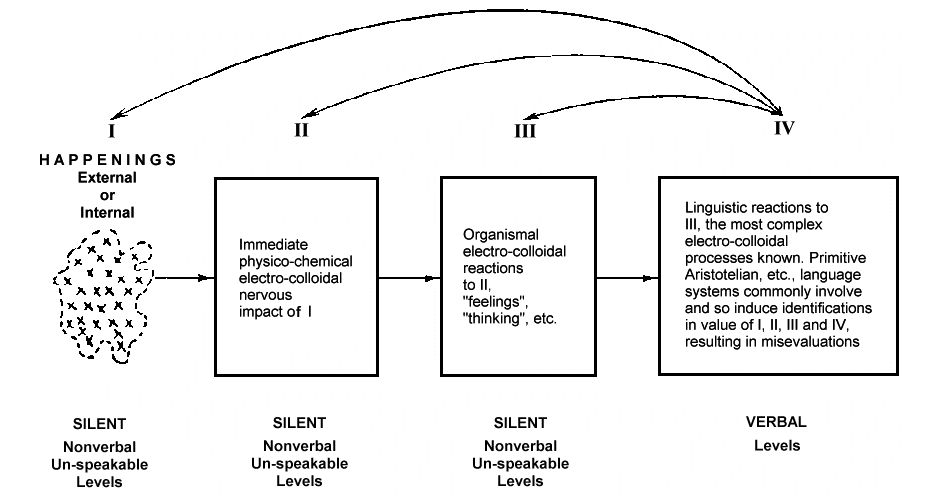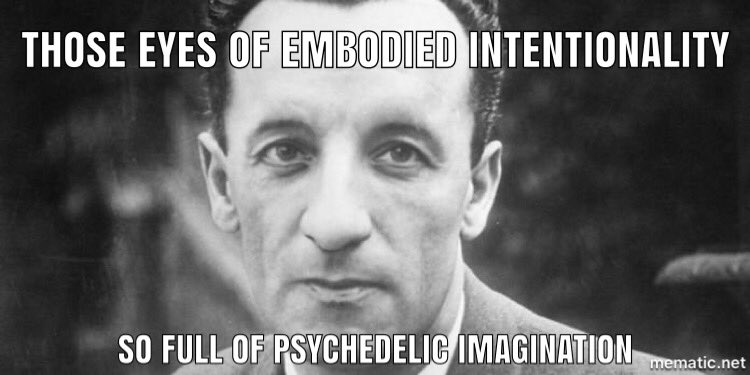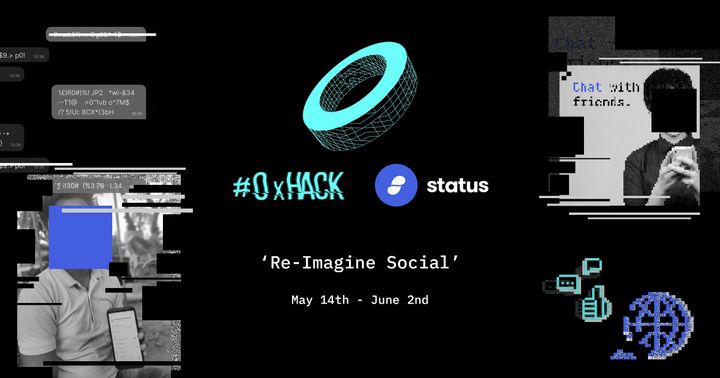I promised some friends that I would give it a rest for a while, but there are a few, last things I'd still like to say about language and what it all means, based on likely the best Twitter conversation I have ever had.
This is more a collection of thoughts than a coherent argument, but there should be some threads left loose for others to pick up and weave together.
María Paula Fernandez made the eloquent point that:
"As Jarrad (but in a lesser degree), I'm clearly in the process of becoming what I preach. Taking language, whether it's the Bitcoin paper or the Qur'an, the Bible or an Aleister Crowley publication and becoming that language is tricky. I want to DAO everything. But then I wonder: is this some new kind of hidden fundamentalism? I know that I am now simply unable to interact with friends outside of the bubble without introducing my new brain programming. Is this entirely good? Will we lose empathy for those who are not in the loop?"
I think that we can potentially find an answer to this by going back to where I started - Marianne Brün and Paradigms.
If I fail to notice that I think and speak, under the influence of language, in patterns and constructs accumulated and preserved in the junkyards of long since vanished paradigms, then this shows my lack of consciousness with regard to just that power with which language can quickly make me spokesman for ideologies, in which everybody is almost always "right" at the "wrong" time."
"The dilemma is that neither insight nor good intention, not even syntactic and grammatical care, will protect me from becoming an ideologist as long as I am unable or unwilling to create the suitable language which speaks as I think and not louder than my thoughts."
The question, of course, is "How do we actually practice that sort of language? What does it really look like?". Well, I left a link to Alfred Korzybski's General Semantics in the previous post - which is precisely the sort of methodology you can actually use in the real world to ensure that your language speaks as you think and not louder than your thoughts:
"'Once we differentiate, differentiation becomes the denial of identity,' Korzybski wrote in Science and Sanity. 'Once we discriminate among the objective and verbal levels, we learn "silence" on the unspeakable objective levels, and so introduce a most beneficial neurological delay — engage the cortex to perform its natural function.'"
It's the neurological delay, and how it uses linguistics as a method of patterning memory and more automatic, physiological responses that is most central to Korzybski's method. María then asked:
"In pragmatic, impulsive individuals, I wonder if GS-like processes would be applicable or are our actions simply that; impulses (effective or not). Maybe we have a faster language into thoughts processing, evolved immediately into actions. Maybe we skip this. What are your thoughts on this?"
I think the key to it all is the paragraph in the Wikipedia entry on General Semantics that talks about autoassociative memory. If you can learn to pattern your memory through appropriate linguistic responses, then it kicks in potentially even at Level II and results in intuitively right action at even non-verbal and silent levels.

The one and only Gabrielle Micheletti then joined in with this question:
"Interesting notion. I would be at a loss, however, to account for appropriate response intuition pre-autoassociative memory... Socratic "remembering"?"
Socratic remembering refers to Socrates' dialogues with Meno about the difference between learning and remembering. In summary, he invites an uneducated boy into the discussion and asks him some basic questions about geometry. The boy answers them. Socrates' argument doesn't have to do with the validity of the boy's answers, but rather with the fact that he was capable of answering at all. How can this be? There must be some kind of implicit knowledge on which the boy draws that is not learnt, but remembered, which has big consequences for how we think about education in general.
Cool as it is, Socratic remembering is not really what I meant when pointing to autoassociative memory as an interesting lense through which to think about intelligence and right response. What I have in mind is more like an honest, sincere dialogue with the world you encounter which results, by definition, in a linguistic patterning of autoassociative memory, which then feeds back into how one intuitively encounters the world. Sort of like the original cybernetics.
This is where we go into hyperdrive. Gabrielle pressed me on the point, because I was (intentionally) evading her real question.
"Lovely thought there; although, it still doesn't address what I was referring to. Here we're still referring to the "results", and that (agreed) idea of 'language shaping the human', but what of sensory 'pre-linguistic' developmental perception?"
The long and technical answer to that is contained in this neuroscience paper on psychedelics. Here's another great rabbit hole if this is your thing. There's also a great - and much simpler - book doing the rounds.
The short answer is: "Well, there's always soma."
Soma is a substance discussed by Aldous Huxley in Brave New World, but the term comes from a Vedic ritual drink of importance among the early Indians. It is mentioned in the Rigveda, particularly in the Soma Mandala. In the Avestan literature, the entire Yasht 20 and Yasna 9–11 are dedicated to "haoma". It's the substance taken during ceremony to induce altered states of consciousness, altered stages for human-beings.
Interestingly, it also links to somatic, which means "to do with the body". Which brings us, finally, to Maurice Merleau-Ponty and embodied intentionality.
Merleau-Ponty emphasized the body as the primary site of knowing the world, a corrective to the long philosophical tradition of placing consciousness as the source of knowledge, and maintained that the body and that which it perceived could not be disentangled from each other. The articulation of the primacy of embodiment led him away from phenomenology towards what he was to call "indirect ontology" or the ontology of "the flesh of the world" (la chair du monde), seen in his final and incomplete work, The Visible and Invisible, and his last published essay, "Eye and Mind".
Wikipedia states in summary that:
"The essential partiality of our view of things, their being given only in a certain perspective and at a certain moment in time does not diminish their reality, but on the contrary establishes it, as there is no other way for things to be copresent with us and with other things than through such "Abschattungen" (sketches, faint outlines, adumbrations). The thing transcends our view, but is manifest precisely by presenting itself to a range of possible views. The object of perception is immanently tied to its background—to the nexus of meaningful relations among objects within the world. Because the object is inextricably within the world of meaningful relations, each object reflects the other (much in the style of Leibniz's monads). Through involvement in the world – being-in-the-world – the perceiver tacitly experiences all the perspectives upon that object coming from all the surrounding things of its environment, as well as the potential perspectives that that object has upon the beings around it."
Wow - via Merleau-Ponty and Heidegger - we're back to Leibniz, Monads, the perfect language, and a presentation I gave in Bangkok… :mind_blown:
I hope you've enjoyed the ride so far.

. . .
P.S. There is, of course, much more to be said about the link between soma and somatic, for instance, or about Merleau-Ponty and monads, but I'll leave that as an exercise for the rare reader who has made it this far.
P.P.S. One of the things I will leave here about Merleau-Ponty is this quote:
Merleau-Ponty’s ecophenemonology with its emphasis on holistic dialog within the larger-than-human world also has implications for the ontogenesis and phylogenesis of language, indeed he states that “language is the very voice of the trees, the waves and the forest.”
If only because it links nicely to this talk of Trent McConaghy's and this fantastic image from it:









